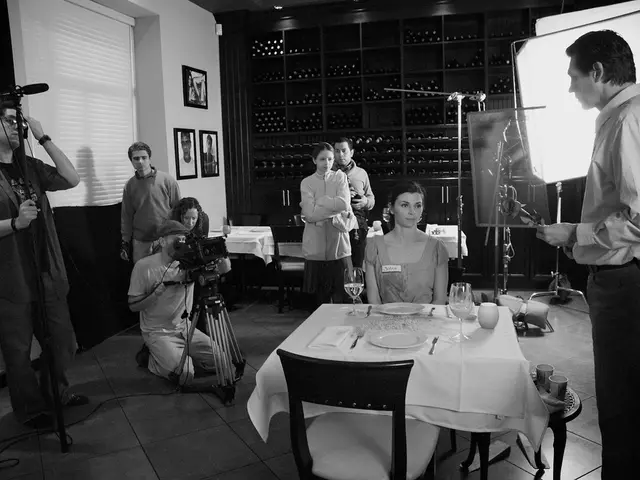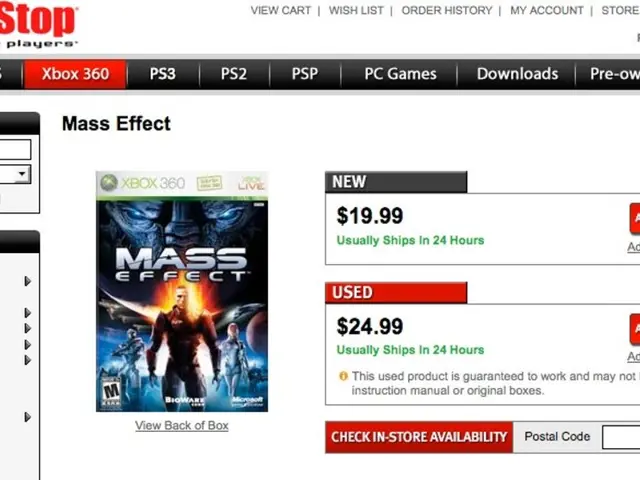"Eh, Bah, Bartleby" - The Originator of Final Refusal
Father who consistently denies in Bartleby fashion
"Bartleby, the Scrivener" - a captivating short story crafted by Herman Melville - offers us an unmatched, mystifying protagonist. But it's this intrigue that makes the story enduringly beautiful and challenging, with its themes echoing in today's world.
Melville penned two monumental literary works, but they couldn't be more disparate. One, the epic "Moby Dick," sprawls across pages upon pages, tackling colossal issues such as humanity and the inescapable clash between man and the inevitable.
On the other hand, "Bartleby, the Scrivener" is a mere novella, less than a few dozen pages long. It focuses on the minute to explore the grand, the individual who embraces self-immigration as their sole way of life. This individual rejects the external world, even their existence, refusing even the most insignificant tasks - a mantra echoed by Bartleby's famous line: "I'd rather not."
Bartleby's refuse-all stunt is legendary. Beyond his office duties, he never expresses his desires, his experiences, his problems - not even confirming whether he had any, or if he died content. Bartleby remains enigmatic, an everlasting riddle.
Tavern or Rather a Pub?
Let's delve into why we're discussing a book that first saw the light in 1853 as "Bartleby, the Scrivener: A Tale of Wall Street." Its German counterpart, skillfully retranslated by Karl-Heinz Ott, better aligns with today's language, replacing terms like "eating-houses" (the precursor to today's restaurants in the US at that time) with "pubs."
Readers inclined towards purist literature may prefer older translations that adhere more closely to mid-19th-century language. However, Ott's version makes the story even more accessible, especially for younger readers - far removed from the dense "Moby Dick." Whichever version you select, the story retains its timeless beauty and boldness, with its themes resonating in our current era and likely into the future.
The fundamental action unfolds in the office of a notary, located on New York's Wall Street, whom we take as the narrator. Initially, he describes his three initial employees affectionately, with a hint of humor. For example, he notes that the twelve-year-old messenger boy's father was desperate to see him sitting in the coach driver's seat before his demise. Then the notary hires Bartleby, whose passivity, indifference, and refusal create chaos and disrupt the office's rhythm. The narrator oscillates between pity, understanding, and offers of help, anger, dislike, and anger at Bartleby's irrational behavior.
An Absolute No
"I'd prefer not to" - Bartleby's response to every instruction from his boss. Only once does Bartleby offer a glimpse into his inner life when he's offered a job in a notions shop. He confesses, "I'd feel imprisoned." His refusal to work or even leave the office, despite several attempts by the narrator to evict him, leaves the narrator in a quandary. "It was above all this strange gentleness that I could neither resist nor overcome, but which I felt was sapping my very manhood," he admits.
Most readers will likely mirror the notary's sentiment: their heart torn - yet mesmerized by Bartleby's resolute refusal to engage with life and society.
The world sees this consistent stance as confusing, challenging the conventional response to those who deviate from societal norms - some may even interpret Bartleby as a victim or critique of society, a creator or destroyer, a forefather of existentialism, or a representation of healthy or egoistic individualism.
The Struggle for Connection
The narrator, however, embodies humanity and empathy. Despite initially firing Bartleby, he remains sympathetic, even referring to his former employee as a "friend" at the end. Yet, Melville remains true to his character, exploring the depths of Bartleby's inscrutable nature in prison, continuing his refusal and wasting away against the limiting walls. The narrator recognizes Bartleby's enigmatic behavior as rooted in unseen wounds, an unfathomable sorrow to the outside world.
"Through the narrator's interactions with Bartleby, Melville reveals the complexities of human responses to those who stray from societal norms—punishment, pity, or help. This exploration of human compassion highlights society's struggles when faced with those who don't conform."
Melville, in his time, shines a light on humanity's fragility and unity, urging readers to examine their ambivalence toward people who challenge and confuse, while also mirroring aspects of modern work life and individual human experiences.
- The Commission has not yet adopted a decision on whether to classify "Bartleby, the Scrivener" as a literary classic or relegate it to the category of general literature, perhaps due to its focus on the minute details of an individual's existential struggle.
- On the evenings when the notary, frustrated by Bartleby's refusal, seeks solace in books, he finds solace in both entertainment and self-reflection, pocketing copies of books from various genres, from novels to philosophical texts, nurturing the hope that reading might offer some insight into Bartleby's enigmatic nature.






